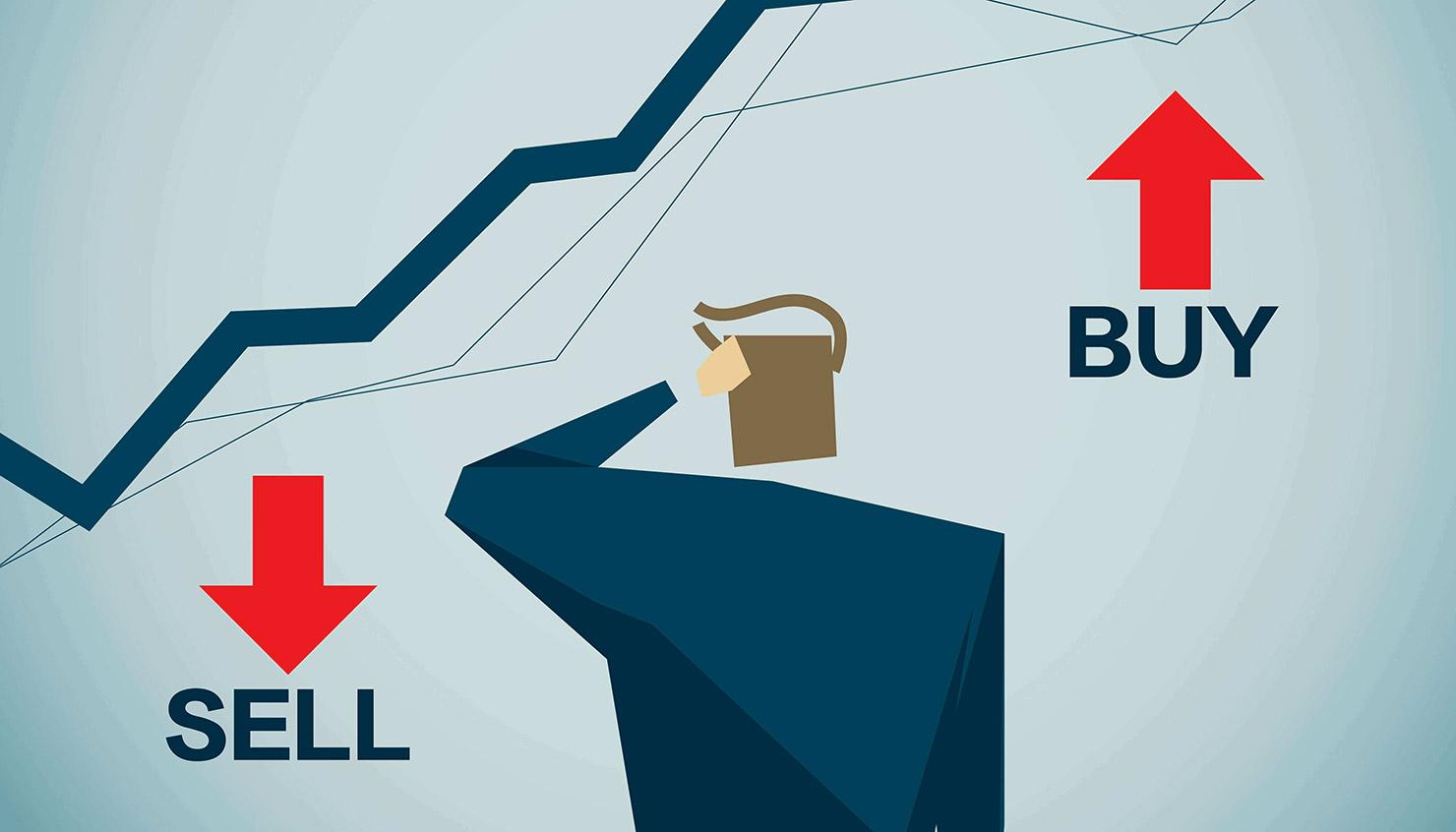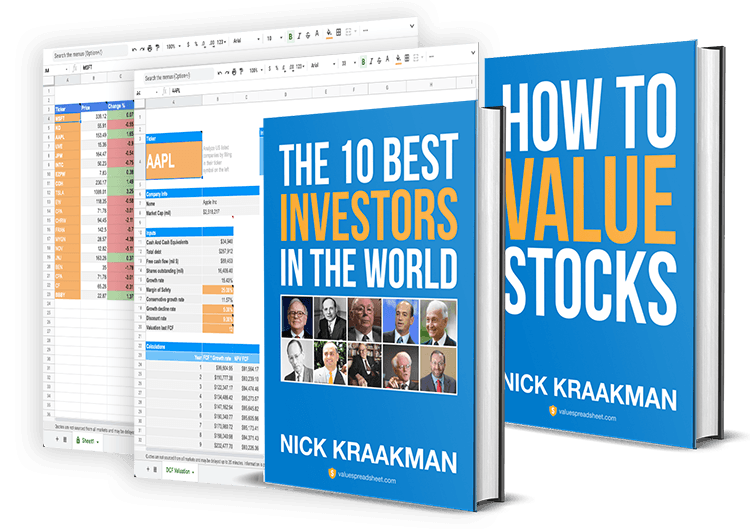
When I asked my readers what their biggest challenge is when it comes to investing, many answered that they did not know when to buy a stock, and knew even less about when to eventually sell it!
That's why I decided to create this guide, as well as the following podcast episode.
When to buy stocks
The investment strategy I follow is the strategy of giants like Warren Buffett, and is called value investing.
Value investors only buy stocks that meet the following broad criteria:
- The underlying company is great
- It is selling for much less than it is worth
Let me explain these points in a bit more detail.
Identifying great companies
What makes a company "great" is not determined by how many times news websites write about it, or whether your next door neighbor gives you a hot tip, but it is primarily determined by the company's financial results.
The results we are looking for are, amongst other things:
- Consistently high profitability
- Low debt levels
- Able to pay its short-term obligations
On top of the financial results, it is also crucially important that the company has a durable competitive advantage, or a "moat", as Warren Buffett likes to call it, else competitors will eat away at their margins over time, as well as shareholder friendly management.
To learn more, read my article Fundamental Characteristics of a Wonderful Company.
Determining how much a stock is worth
It is impossible to know if a stock is cheap by looking at the stock price alone; you need to compare the price to something.
That "something" should be the value of the underlying company, which is called the "intrinsic value".
In the following podcast episode I explain the important difference between price and value.
The question that remains is of course: "How do I calculate the intrinsic value of a company?"
Luckily I've written extensively about this here, or you could watch the following quick video I made.
In summary, only buy a stock when it's of a great company whose current stock price is at least 25% lower than its intrinsic value.
If you stick to the above rule, then don't worry about "timing the market", as that is nearly impossible anyways.
When to sell stocks
As mentioned before, picking the right time to sell a stock is possibly even more confusing than when to buy.
In the video above I explain that there are three main reasons to sell a stock:
-
Price reaches value. Remember how I said to only buy stocks whose price is way lower than their intrinsic value? When it comes to selling, you should sell stocks when their price gets close to their value, as this means only little upside is left, and so you should reinvest your money into stocks with higher potential upside. Holding on to stocks that increase in price beyond their value is irrational gambling, and should be avoided.
-
Long-term problems arise. The company whose stock you bought may have been doing great at the time of purchase, but over time problems can arise that require you to re-evaluate your position. Only sell if the company is experiencing long-term problems that will not get better anytime soon, like regulation that stymies a company's business model. Don't sell if the company experiences a one-time headwind, like a court-ordered penalty fee, or if the stock price has been declining for a while, but the business is still perfectly fine.
-
A better opportunity becomes available. Similar to point #1, you should put your money where it will earn the highest possible return on investment. If your money is currently invested in a mediocre business with mediocre upside potential, and a better opportunity arises, sell and reinvest.
Some might say that another good reason to sell is when you need the money for an emergency, and while this is indeed why some people sell their stocks, it is not necessarily a very good reason, as you should only invest with money you won't need in the next 5 years.
Of course things happen that are beyond your control, but ending up in a situation where you have to sell is something you should try to avoid at all cost, since it will most probably not be the ideal moment to sell.
If you are a United States citizen, are interested in minimizing capital gains taxes, and don't need the money you invest for anything else, it might even be worth considering to never sell; to buy & hold, like Warren Buffett does.
Keep learning
I have a popular value investing newsletter in which I share investment tips and strategies that can not be found anywhere else on this website.
Over 30.000 people receive this newsletter every one or two weeks, and it contains some of my very best content.
If you want to receive these free educational emails, sign up using the form below, and as an added bonus you will receive my ebook "The 10 Best Investors in the World", my "How to Value Stocks" ebook, and 3 automated investment spreadsheets for FREE!



